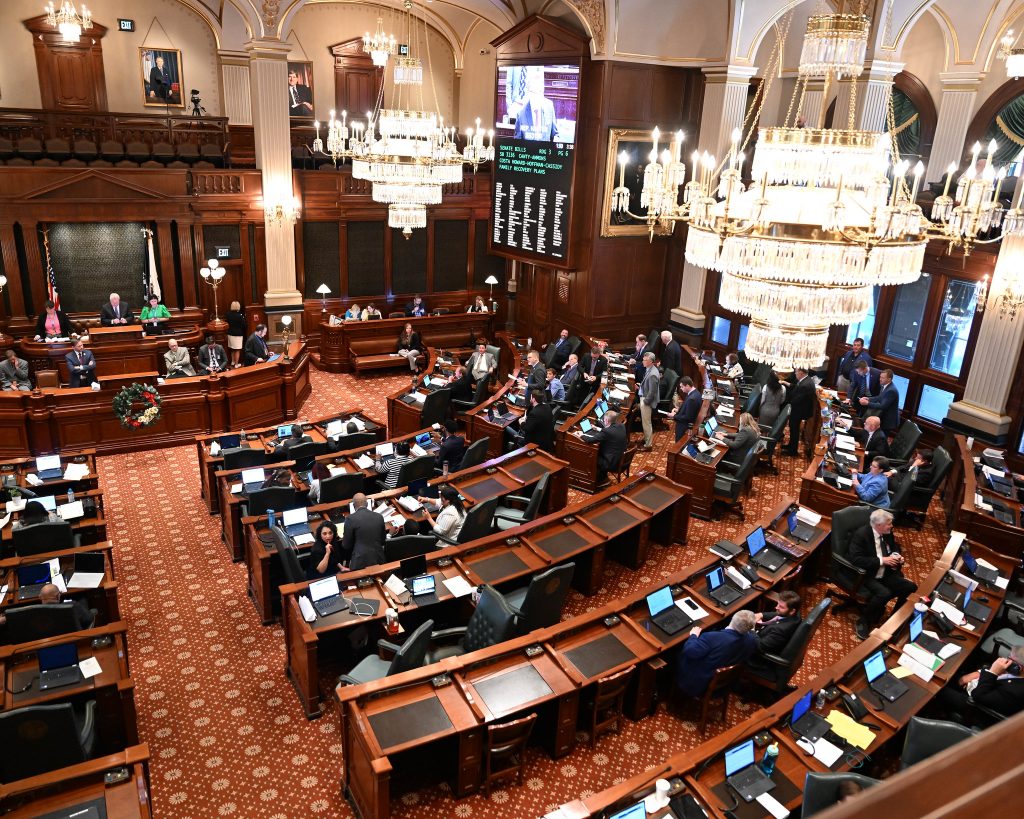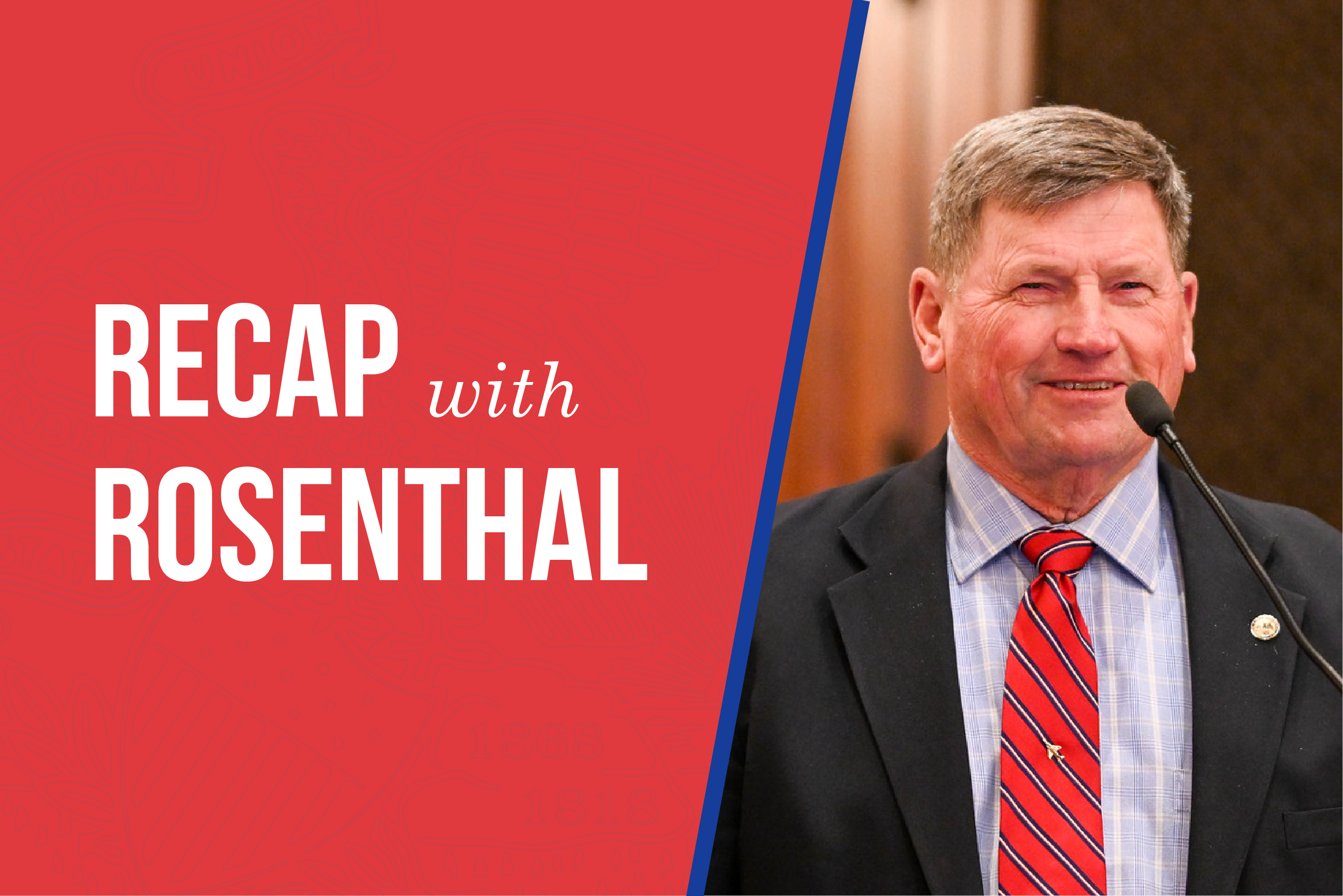ILLINOIS NEWS
MADIGAN TRIAL
Mike McClain’s “magic lobbyist list” presented to jurors in Madigan criminal trial. McClain, a former close associate of Michael J. Madigan, is on trial with the former Illinois House Speaker in federal court in Chicago. Madigan and McClain have been charged with a variety of crimes relating to influence peddling. These charges include allegations that Madigan and McClain “clouted” their allies and associates into leadership positions in other key Illinois entities, such as Chicago-based electricity distributor ComEd. On Tuesday, November 19, former ComEd board member Juan Ochoa testified to the court about how, as a Madigan ally, he had won appointment to the governing board of ComEd.
In courtroom action on Monday, November 18, the jurors got to see printed emails from McClain’s home office, which had been raided by the FBI in May 2019. McClain, then a powerful lobbyist and Madigan insider, was actively searching for clients and his emails sold himself as a gatekeeper with ultimate access to Speaker Madigan.
“I don’t roam the [State Capitol] halls like I used to,” McClain admitted, but he claimed that his clout was as big as ever. As proof, the email contained a sealed list, which McClain referred to as a “magic lobbyist list” of influencers associated with McClain and Madigan. Acting as Madigan’s informal aide, McClain wrote down a claim that he had helped these “magic lobbyists” gain special entry into the Speaker’s office.
Once there, these lobbyists could help write the future laws of Illinois, and block bills that their clients did not like. The case being made by the federal prosecution in this trial includes allegations that these lobbyists included high-ranking representatives of ComEd, whose leadership had allegedly been drawn into the Madigan orbit. This orbit included associated control over Illinois electricity generation, distribution, and rates.
GENERAL ASSEMBLY

Illinois General Assembly concludes quiet veto session. House Republicans, led by Tony McCombie and her leadership team, took the November 2024 veto session as an opportunity to welcome new lawmakers to the Illinois State Capitol. These included newly elected state representatives who will take the oath of office in the 104th General Assembly in January 2025.
Little legislative action was taken during the recently concluded Veto Session. Governor Pritzker and the Democratic supermajority punted controversial legislative proposals to the January lame-duck session of the current General Assembly.
Following the adjournment of legislative veto session in the Illinois House, House Minority Leader Tony McCombie issued the following statement:
“We do not need more time for out-of-touch Democrats to dream up harmful legislation. We need bipartisan legislation that focuses on the issues Illinois families care about most. Until the Democrat majority can get their priorities in order, the House Republicans oppose a Lame Duck session.”
FIREARMS
Atty. Gen. Raoul asks appellate court to stay federal ruling striking down firearms ban. The decision by federal District Judge Stephen McGlynn found that the so-called “Protect Illinois Communities Act,” a January 2023 law that purports to ban almost all private-sector possessions of certain groups of firearms and ammunition supplies in Illinois, is unconstitutional. The 168-page decision struck down the law in its entirety, citing various case judgements from the United State Supreme Court and other courts that draw broad boundaries around the “right to bear arms” enshrined in the Second Amendment to the U.S. Constitution.
As with all federal district court decisions in Illinois, the decision can be appealed to the Seventh Circuit of the United States Court of Appeals, the Chicago-based federal appellate court. Illinois Attorney General Kwame Raoul, a Democrat, has filed an appeal. His appeal supports the law and opposes the judicial decision. As a move affiliated with the overall appeals process, the attorney general has also asked that the district court’s permanent injunction against the enforceability of the Protect Illinois Communities Act be stayed. If the appellate court grants the stay, the controversial law will remain in place, for now.
Criticisms of the new Illinois gun ban are widespread. Lawmakers who voted “no” against the new law, which included most Illinois House Republicans, pointed out that the definitions of banned firearms and ammunitions supplies set forth in the new law are vague and potentially unenforceable. They also, like Judge McGlynn, point towards the explicit right to bear arms contained in the federal Bill of Rights, which outranks all State laws.
JOBS
Illinois unemployment rate remained at 5.3% in October 2024. Based on the preliminary figures released by the Illinois Department of Employment Security (IDES), the unemployment rate remained unchanged from the 5.3% confirmed for the previous month of September. This Illinois jobless rate was 120 basis points higher than the comparable national unemployment rate of 4.1%.
The preliminary October findings continue to indicate that the post-COVID-19 economic recovery has effectively ended in Illinois, with payroll growth flattening out to zero. Illinois employers reported paying 6,142,400 (seasonally adjusted) non-agricultural workers in October 2024, down 2,400 from the equivalent number in September.
The overall picture of zero job growth in Illinois in 2024 contains large pockets of growth and decline. Over the most recently concluded 12-month period, Illinois employers of people in professional and business services reported cutting 18,400 Illinois jobs, and employers in financial services reported cutting 8,000 jobs.
Illinois continued to create new jobs in healthcare (up 30,400) and government (up 22,300) during the same 12-month period. Manufacturing-oriented metro areas within Illinois continued to experience comparative job stagnation and high unemployment in October 2024. Examples include Danville (6.2% unemployment in October 2024), Decatur (5.8%), and Rockford (5.4%).
Change to State law partly forestalls additional lawsuits based on biometric privacy. Many workplaces use technology-based identifiers, such as fingerprints, to verify that workers have signed in for their work hours and for other essential purposes. Workplaces constantly require people to sign in. As just one example, current federal law requires over-the-road truckers to maintain secure electronic logs for their work hours and mileage driven. These logs are essential to maintain the safety of our nation’s highways.
The Biometric Information Privacy Act (BIPA), an Illinois law enacted in 2008, jeopardized many forms of electronic sign-in in its original wording. Up until this year, the Act treated each of these sign-ins as separate potential violations of the biometric privacy of the people who sign in. Aggressive trial lawyers then began to use the Act to file class-action lawsuits against Illinois employers, seeking huge damages. These damage suits were filed against a wide variety of workplaces and employers, including employers who were using electronic sign-ins to comply with other State and federal laws.
Seeing a threat to Illinois jobs and acting with increasingly rare sensitivity to the need to protect Illinois jobs and workplaces, the 103rd General Assembly enacted a key amendment to BIPA. The new amendatory Act maintains the status of Illinoisans’ biometric privacy as a legal right, but sharply lowers the amount of damages that aggressive trial lawyers can sue for and collect for alleged violations of this privacy.
In a recent decision in federal court in Chicago, the court upheld the validity of this year’s General Assembly clarification of the BIPA law. The decision could save some jobs from being moved out of Illinois. Many House Republicans continue to call for further changes to BIPA to create a reasonable standard for protection of worker privacy, and to grant much-needed clarity to workers and employers as to when a violation of the Act has taken place.
OUTDOOR RECREATION

Firearm Deer Season Opens Friday in Illinois. Deer hunters in Illinois will be busy this weekend, as firearm hunting season begins this Friday and continues through Sunday, November 24. A second round of firearm deer hunting will be coming in two weeks, from December 5 through 8.
During Firearm Season, hunters can use shotguns, muzzleloaders, handguns, and centerfire rifles. Vertical, traditional, and crossbows can also be used, but only on private property. Hunters also must adhere to clothing requirements, which call for a solid blaze orange or blaze pink hat and an outer garment that displays at least 400 square inches of orange or blaze pink material. In 2018, Rep. Tony McCombie co-sponsored legislation that allowed deer hunters to wear solid pink gear in addition to solid orange.
Hunting hours during this period are one-half hour before sunrise to one-half hour after sunset. Hunters must also have proper deer permits and a valid hunting license. The bag limit is one deer per hunter, and over a 12-month period that begins on July 1, no hunter may harvest more than two antlered deer. Upon killing a deer, hunters must adhere to reporting/registering guidelines as outlined by the IDNR. Find license and permit information here.
